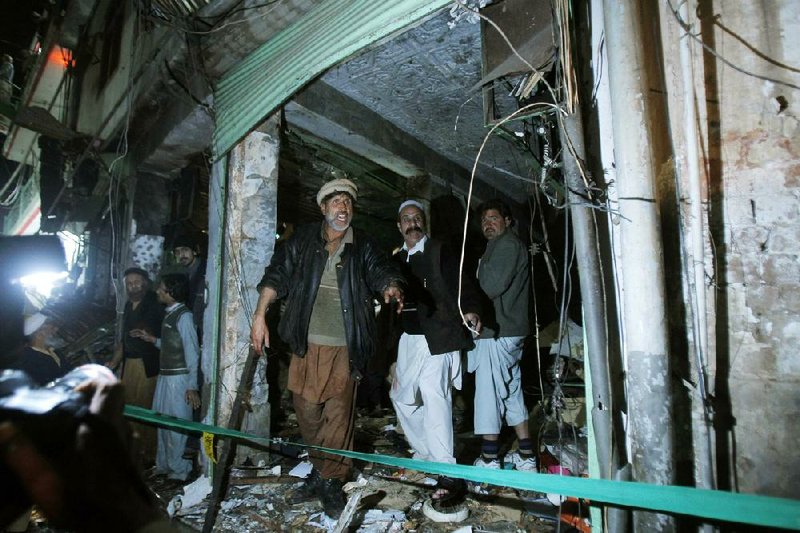ISLAMABAD - A suicide bomber killed nine people in northwestern Pakistan on Tuesday, just hours after peace talks between government negotiators and a team representing the Pakistani Taliban were delayed, officials said.
The bombing in Peshawar, just yards from a Shiite mosque, also wounded 30 people, said police official Shafqat Malik.
There was no immediate claim of responsibility for the attack on a hotel frequented by members of the Shiite Muslim minority sect. Sunni Islamic militants view Shiites as heretics, but the Pakistani Taliban denied any responsibility for the bombing.
Pakistani Prime Minister Nawaz Sharif has been pushing for negotiations over military operations to end militant violence in the Islamic country, where more than 40,000 people in recent years have been killed in acts of terrorism. Authorities blame most of the deaths on the Pakistani Taliban.
Both sides recently named their negotiating teams, which had been expected to meet Tuesday in the capital, Islamabad. But the process was marked by confusion from the beginning, with government negotiators failing to show up and sparking criticism from those speaking for the militants.
Maulana Samiul Haq, a Pakistani cleric picked by the Taliban to represent them, said his team had waited in vain.
“We waited for the government team today, but they did not come,” he said, claiming that authorities were under U.S. pressure to avoid the talks.
A member of the government’s team however said his side had been waiting for the Taliban to confirm to them the identities of their negotiating team members.
“We did not meet with the representatives of the Taliban, as we needed some clarity from them,” Rahimullah Yousufzai said, adding, “Now we have received that clarification, and the meeting will take place in the next two days.”
In a statement, a spokesman for the Pakistani Taliban, Shahidullah Shahid, prayed for the success of the talks. “May God help these people in this noble task,” he said about Haq and two other members of the Taliban team.
Militants in Pakistan began targeting security forces and civilians in retaliation for Pakistan throwing its weight behind the U.S.-led war in neighboring Afghanistan and for going after militants in the tribal areas.
The violence has put pressure on Sharif to use force against the militants. In an apparent move to avoid any such operation, Pakistani Taliban recently agreed to the peace talks.
Meanwhile, President Barack Obama’s administration has sharply curtailed drone strikes in Pakistan after a request from the government for restraint as it pursues the peace talks, U.S. officials said.
“That’s what they asked for, and we didn’t tell them no,” one U.S. official said. The administration indicated that it will still carry out strikes against senior al-Qaida targets, if they become available, and move to thwart any direct, imminent threat to Americans.
The current pause follows a November strike that killed Pakistani Taliban leader Hakimullah Mehsud just days before an initial attempt at peace talks was to begin. Sharif’s government accused the United States of trying to sabotage the talks, and the Taliban canceled the meeting.
The absence of strikes marks the longest pause in the CIA’s drone campaign since a six-week lull in 2011 after an errant U.S. air assault killed 24 Pakistani soldiers at a border post, triggering a diplomatic crisis.
Information for this article was contributed by Munir Ahmed of The Associated Press and by Karen DeYoung, Greg Miller and Julie Tate of The Washington Post.
Front Section, Pages 5 on 02/05/2014
